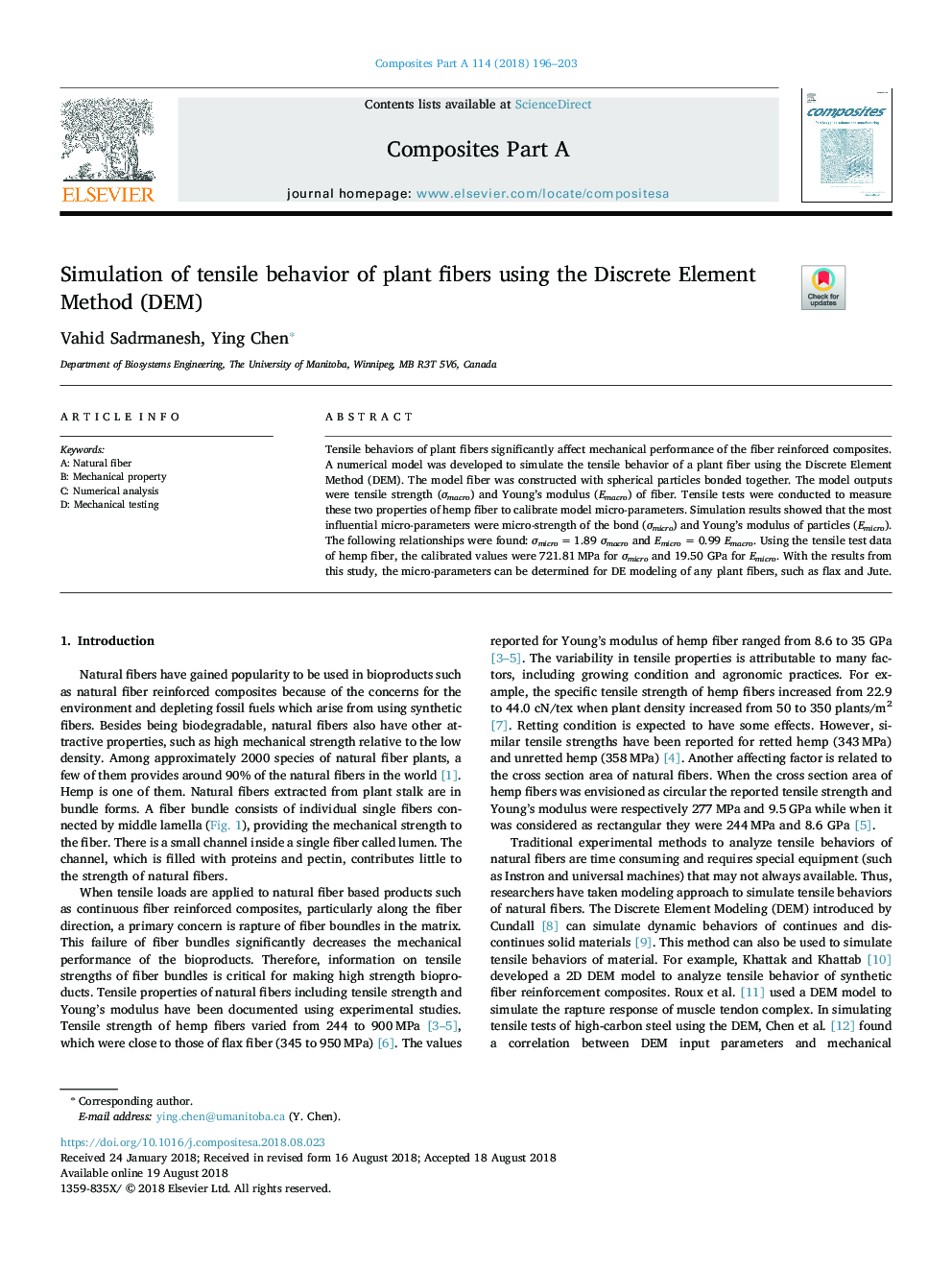| Article ID | Journal | Published Year | Pages | File Type |
|---|---|---|---|---|
| 8943133 | Composites Part A: Applied Science and Manufacturing | 2018 | 8 Pages |
Abstract
Tensile behaviors of plant fibers significantly affect mechanical performance of the fiber reinforced composites. A numerical model was developed to simulate the tensile behavior of a plant fiber using the Discrete Element Method (DEM). The model fiber was constructed with spherical particles bonded together. The model outputs were tensile strength (Ïmacro) and Young's modulus (Emacro) of fiber. Tensile tests were conducted to measure these two properties of hemp fiber to calibrate model micro-parameters. Simulation results showed that the most influential micro-parameters were micro-strength of the bond (Ïmicro) and Young's modulus of particles (Emicro). The following relationships were found: Ïmicroâ¯=â¯1.89 Ïmacro and Emicro =â¯0.99 Emacro. Using the tensile test data of hemp fiber, the calibrated values were 721.81â¯MPa for Ïmicro and 19.50 GPa for Emicro. With the results from this study, the micro-parameters can be determined for DE modeling of any plant fibers, such as flax and Jute.
Related Topics
Physical Sciences and Engineering
Materials Science
Ceramics and Composites
Authors
Vahid Sadrmanesh, Ying Chen,
